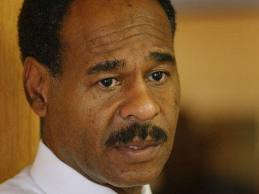Both houses of Congress have now put their stamp of approval on the bill to raise the debt ceiling, just hours before a deadline that would have lowered the U.S. credit rating, forced the country to default on its debts, and potentially triggered a worldwide recession.

No one seems very excited about the legislation. Sen. Carl Levin (D-MI) said, “Seen in isolation… this is not a good bill,” adding that, “despite its many flaws, this legislation must pass.” Senate Majority Leader Harry Reid, who pushed hard for the bill, lamented the fact that the bill failed to raise new revenues, saying most Americans, including Republicans, “think the arrangement we’ve just done is unfair, because the richest of the rich have contributed nothing to this.” And Congressional Black Caucus Chair Emanuel Cleaver (D-MO) called the deal a “Satan sandwich.” Even House Minority Leader Nancy Pelosi had to agree, adding that the sandwich had “some Satan fries on the side.”
As we reported yesterday, though the bill doesn’t say anything specific about transportation, there are clearly huge implications. As a Senate staffer pointed out to Streetsblog, the overall caps on discretionary spending are equivalent to a budget freeze for the next two years at FY11 levels (which was a 3.8 percent cut from FY10).
Highway Trust Fund money is considered “mandatory,” not “discretionary,” spending, meaning it will be protected from the cuts. However, since some non-formula funding comes from the general fund, it is more vulnerable to cuts. According to the staffer, that means that “the additional funding needed to meet SAFETEA-LU levels of funding, and discretionary funded programs like highway safety and New Starts, as well as Amtrak, would be on the block and have to compete among other priorities like everything else. So the net effect for transportation may be to impose a de facto Ryan budget in the Senate.”
Besides, the trust fund is hurtling toward insolvency and its balances itself are not enough to adequately fund the transportation system. The budget deal would essentially mean a budget freeze -- which is better than the House plan to cut funding levels by about a third. Some say all this strengthens the case for the Senate bill -- flat funding for two years, with a chance to look at the landscape at that point and see what can be done. With so much in flux, it makes more and more sense to check back in after the dust settles.
At that point, we’ll also have the recommendations of the new fiscal “supercommittee.” That committee, with 12 members chosen from House and Senate Democrats and Republicans, will be tasked with coming up with $1.5 trillion in additional savings, through a combination of new revenues and spending cuts. The Gang of Six, which wasn’t inclined toward raising taxes, did indicate a desire to look at “tax reform” as a way to find $133 billion over ten years to keep the trust fund solvent – though still just at present, non-inflation-adjusted SAFETEA-LU levels. Still, they said they wanted to do this without raising the gas tax, which is a near-impossibility, considering the gas tax accounts for 90 percent of trust fund revenues.
The Gang of Six’s recommendations for a debt deal didn’t make it into the final bill, but they might provide a guide for the supercommittee. Other bipartisan fiscal commissions have also recommended increasing transportation revenues.





